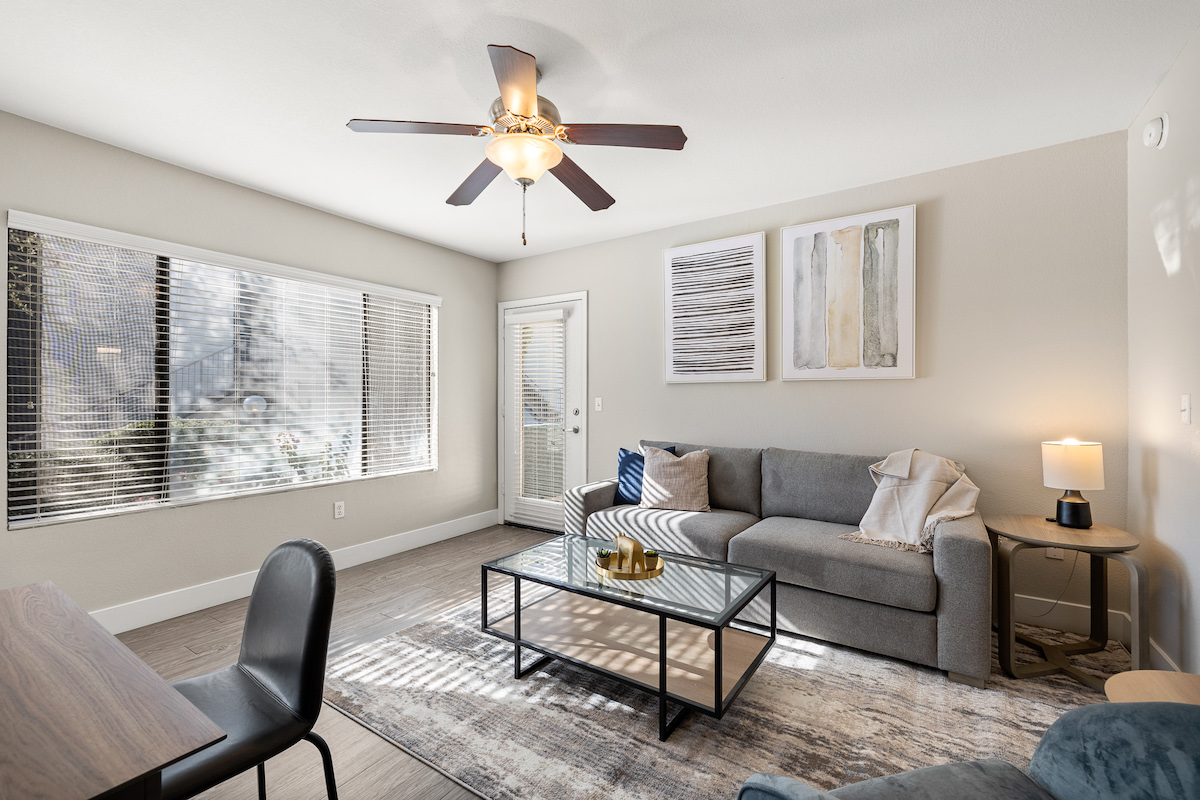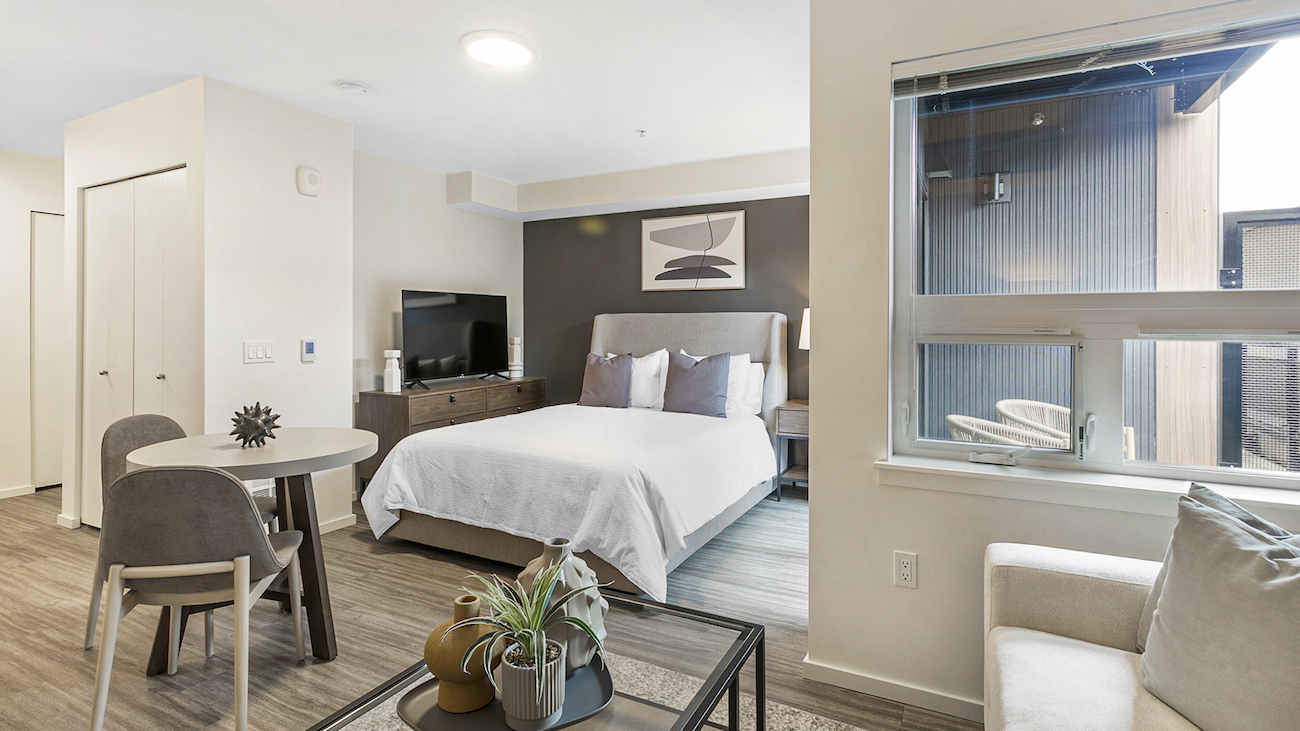
How to Write a Rent Reduction Letter to Your Landlord

The rental market is scorching hot right now. At first glance, those skyrocketing rental costs might seem to put the ball completely in the landlord’s court when it comes to signing a lease agreement for a rental property. But landlords might not always have the complete upper hand.
If you’re looking to renew your current lease or are starting to pack for a future move-in day at a new apartment, you might consider writing a rent reduction letter to a landlord in which you will attempt negotiation for a lower monthly rental amount.
Can you really negotiate a reduced rent rate?
You might be thinking: Can I really ask my landlord to lower my rent? The short answer is yes. As a tenant, you are able to attempt a negotiation or renegotiation of your lease agreement, particularly if you have been a good tenant (Read: You haven’t caused any neighbor complaints and you pay your rent on time.)
In what circumstances can you ask for a reduction in rent?
If you are experiencing financial hardship, it is better to let your landlord know sooner rather than later. While the terms of your lease agreement do require you to pay your monthly rent on time, a landlord would much rather work out a reduced rate of rent for the short-term or a condition of repayment rather than get no rent at all.
What to include in a rent reduction request letter
Writing a simple, short letter is best when making such a request of your landlord. Keep it positive, even though your request for a rent decrease will allude to your financial hardship. You can mention how much you enjoyed living in the building and would like to continue living there. Refer to your track record of paying rent on time. While this is what you agreed to do when you signed the rental agreement, courteous renters make for good neighbors and strong landlord-tenant relationships.
Consider this: If your request letter is the only point of communication you’ve had with your landlord or the property manager since your move-in day, they might be willing to grant some rent relief in order to keep such a low-maintenance tenant. Above all, be courteous and professional in your letter to a landlord. Think of it as if you were writing a cover letter to apply for a job.
Reasons your request might be approved
Let’s take a look at the positive side first and consider some scenarios where your landlord might be willing to allow discount rental price:
1. Sign a longer lease
There’s a risk here on your part because this means you are committing to the space you’ve been renting for the long-term—perhaps two years or even more. But this is good news for your landlord who won’t have to worry about finding a new tenant for your unit for quite some time.
This cuts down on their own costs—it can be expensive to have frequent tenant turnover—and ensures that they have income for that unit for two years. They might see this as a valuable savings of both time and energy and respond favorably to your request for lowering their proposed rent amount. This is a good option for new tenants looking to get into a coveted building, too.
2. Extend your lease to end during peak rental season
If a long-term lease is not possible, ask if you can extend it for the short term and end your lease during peak rental season instead. Here’s why: If your lease is set to end in January when moving usually tapers off due to the winter season, there is a chance that your landlord would not be able to fill your unit place until the season starts to heat up a little bit.
If you are willing to extend the lease for a few months until that time by signing a month-to-month lease or other short-term lease agreement, your landlord might be willing might see that as an opportunity to maintain an occupied unit when it might otherwise have been unfilled. You’ll be able to get a discount on your rent and your landlord is set to recoup any costs by having a new tenant come in at the higher rental rate.
Learn more about when peak rental season is in our blog post, “When Is the Best Time to Rent an Apartment?“
3. Pay rent in advance
It might seem counterintuitive to be paying more money when you’re trying to reduce your monthly expense. But if you have the funds and can pay upfront for multiple months of rent—in some hot markets, a year of rent is helpful—your landlord might appreciate the boost in income and keep you at a lower rate moving forward.
4. Research the local housing market
If you’ve noticed that there are numerous vacancies in your building or that the new apartment you’ve been eyeing has been languishing in the real estate listings for some time, this is your opportunity to see if you can strike a rent reduction deal with the landlord. It also pays to do some research on the other apartment complexes in your area to see what other tenants are paying in rent each month.
If your current landlord is looking to raise the rents, research other vacancies in your area. If you find that the prices are lower than what your landlord is currently asking, you might have some leverage.
Reasons your request might be denied
It’s important to understand that a landlord needs your rental payment so that they can pay their own mortgage on their rental property. As such, there are situations where a landlord will likely deny your request. One of them is if there is a waiting list of prospective tenants for your building. If there are others who are clamoring to pay a security deposit and sign leases at the current rent price, it’s likely that even the most outstanding tenants such as yourself won’t have much leverage with their rental reduction request.
Next steps if your rental reduction request is denied
If your request letter for a lower rental rate—or a rent-stabilized renewal agreement in the face of a rent increase—is denied, there are still ways to add value to the space.
If there are any appliances that need to be replaced in your unit, discuss them with your landlord. While having a brand-new refrigerator installed is not the same as paying lower rent, it is a great perk of living in that space.
If you live in an amenity-rich apartment complex, you may want to see if you can get a reduction in rent if you don’t use all that is included in your monthly payment. On the flip side, if you can’t lower your rent, you might be able to negotiate amenity upgrades, such as free access to the pool or fitness center or perhaps even a parking space. Note that if you do currently have a parking space on the property and don’t use it, you might be able to rent out your spot to another tenant to make up your cost savings each month.
Timing is everything when it comes to the real estate market, and the same goes for negotiating a more reasonable rent. Check your tenant agreement to see when you must give your landlord notice if you are moving on or if you are looking to sign a lease renewal. This is about the time you would want to start negotiating a decrease in rent. You don’t want to do it much earlier, though. For example, halfway through your lease term would be too early to make the request because the landlord will assume you are thinking of moving on and look for a new tenant—and you’ve just given them plenty of time to do it.
Looking for an easier way to live?
If you’re in the market for a new apartment, consider living with Landing. We offer fully furnished apartments in over 375 cities throughout the U.S., all with flexible lease terms that make it easy to live on your terms. Learn more about what a Landing membership can do for you today!









